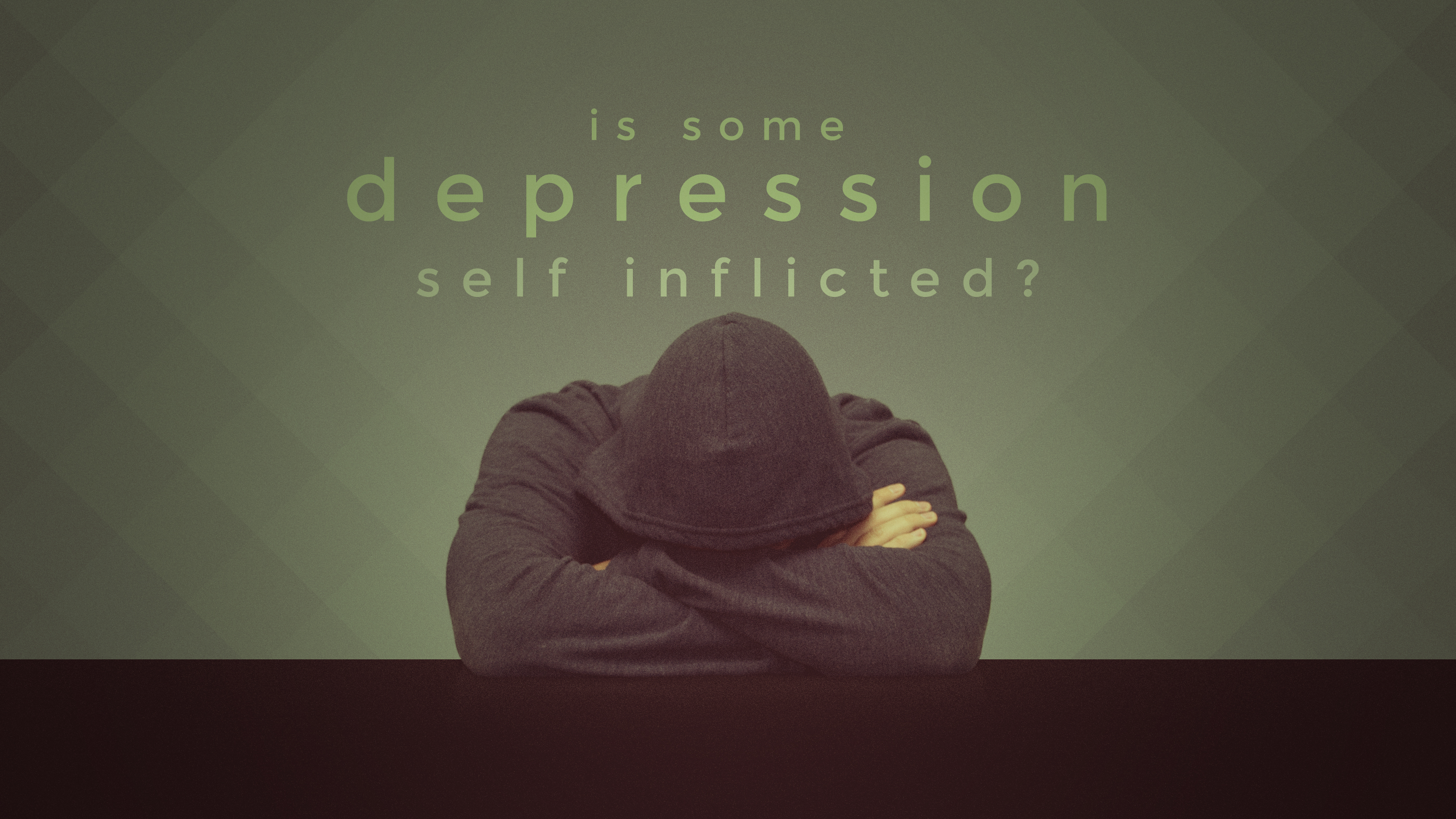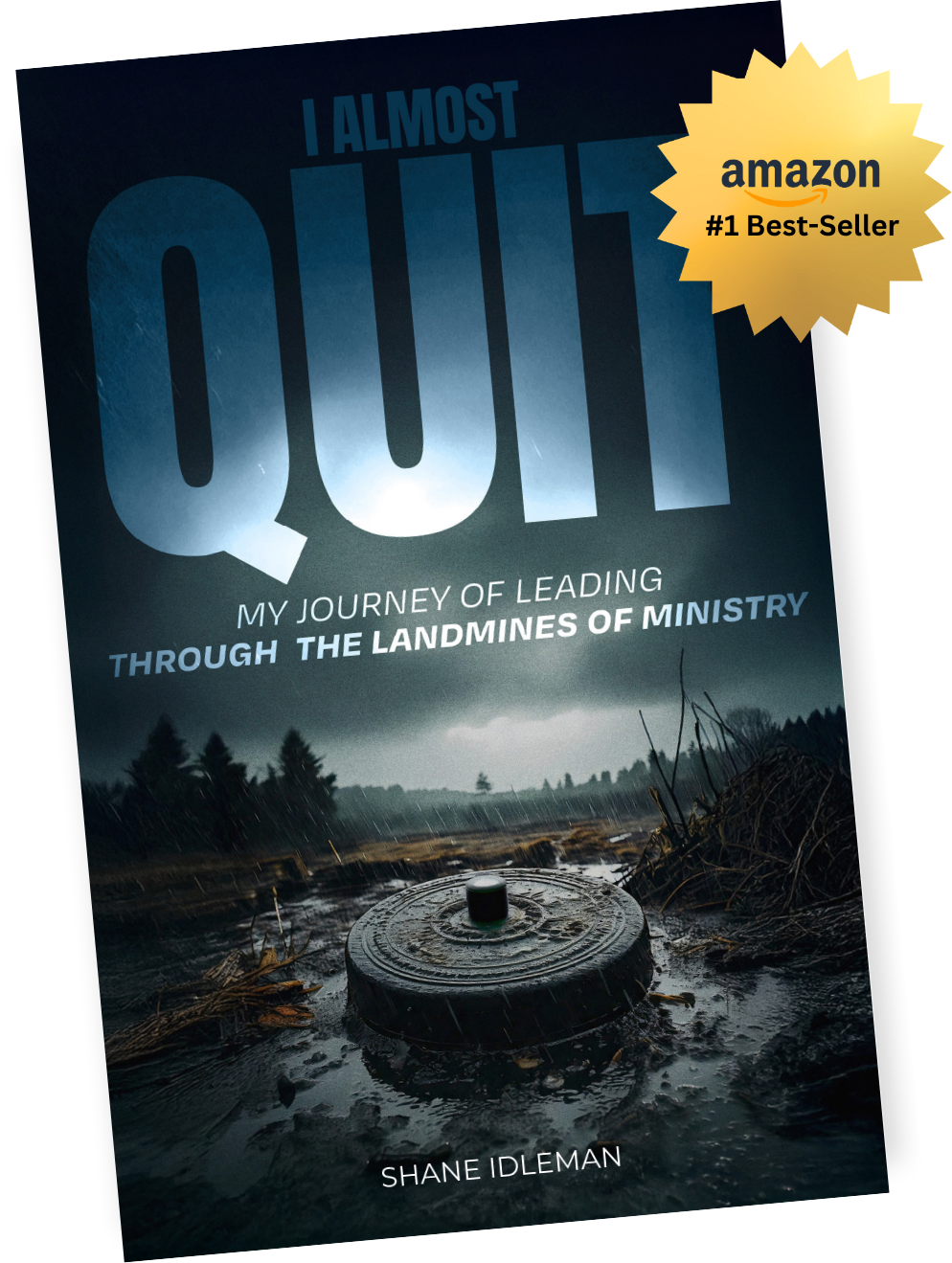Pastor Offers Hope For Those Struggling With Fear, Anxiety & Depression; Says Much Is Self Inflicted
“Suicide has surpassed car crashes as the leading cause of injury death for Americans. Even more disturbing, in the world’s greatest military, more U.S. soldiers died last year by suicide than in combat,” wrote David Kupelian, in his article entitled: Americans ‘snapping’ by the Millions.
My hope is that readers will read the entire article before drawing conclusions. I have nothing but compassion for those trapped in depression. Those who strongly believe in the Bible and God’s will regarding illness also strongly believe in unconditional love and forgiveness. We can’t tell a clinically depressed person to “just get over it…pray and move on,” but on the flip side, we can’t dismiss the fact that some depression is self-inflicted.
Please don’t misunderstand, I’m not discounting the deep emotional and psychological pain associated with depression and anxiety, but I do want to remind you that God makes provision for all of our needs. There may be a time and a place for medication, but, in most cases, it should not be the first thing we turn to. The first step must be toward God…toward worship.
Worship breaks addiction and depression; anxiety and fear must flee in the presence of heartfelt worship. Although not always, depression, fear, and anxiety are often by-products of a misaligned heart. We consume food everyday to live, why then, do we think that we can avoid worshiping God and not die spiritually?
This article is a serious and urgent call toward heart examination. “God is spirit, and his worshipers must worship in the Spirit and in truth” (John 4:24). Are you worshiping Him in spirit and in truth? He is not an exalted man, a doting grandfather, or the “man upstairs”…He is Creator of heaven and earth. Worship must be a priority. True worship is a reflection of a heart set toward God.
We cannot live like hell all week and expect heaven to fall during worship. We cannot fill our mind with darkness all week and expect the light of Christ to shine during worship. We cannot worship ourselves and things all week and expect to turn our affections toward God on one designated day. Worship is a lifestyle!
What entertains you? Are you drawn to things honorable and excellent or dark and depressing? Do you prefer programs about the occult, vampires, witches, zombies, illicit sex, murder, and other perversions of the truth? Do you listen to music that stirs and motivates ungodly lusts and attractions? This isn’t rocket-science: “If your sinful nature controls your mind, there is death. But if the Holy Spirit controls your mind, there is life and peace” (Romans 8:6).
Worship and holiness are interwoven: “Worship the Lord in the beauty of holiness” (Psalm 96:9). Holiness is not a strange, outdated word. Holiness is being set apart or separated from anything that causes us to sin, whether mentally (in what we think) or physically (in what we do). Holiness encourages a heart of worship and discourages depression. On the issue of depression, we can’t dismiss obedience. Obedience is not popular, but it is powerful.
The next consideration involves physical health. I don’t believe that everyone should be healthy. We live in a very sinful world that often results in disease and sickness. God sometimes uses pain, sickness, and disease to draw us closer to Him; however, we cannot throw the baby out with the bathwater and totally dismiss physical health. Poor nutrition affects us negatively in several different ways. High levels of caffeine or nicotine, for example, lead to irritation, anger, impatience, anxiety, and worry…the exact opposite of the fruit of the Spirit. Clearly, health plays a vital role in our overall attitude. When we feed the body what it needs, it will run better. In the same way that many cases of diabetes can be reversed by proper nutrition, so can many cases of depression.
I also encourage those suffering with depression and anxiety to look first at their spiritual and physical health. Again, I’m not minimizing depression or anxiety, they are debilitating, but we shouldn’t immediately assume that we need a prescription without first checking the obvious: Do we have a strong devotional and prayer life? Are we monitoring our thought life and media choices carefully? Are we taking care of our body? For example, the Diagnostic and Statistical Manual for Mental Disorders recognizes caffeine-related disorders such as caffeine intoxication, caffeine-induced anxiety disorder, and caffeine-induced sleep disorder. These can begin with even minimal doses. Increase the amount to 500mg. of caffeine (the amount found in approximately 24 ounces of coffee) and these symptoms are dramatically increased. All this can lead to angry outbursts, panic attacks, severe depression, and extreme irritability. This begs the question, “How many are suffering mentally and physically simply because of poor health—continuing the addiction rather than removing the cause of the problem?”
Not in all cases, but in most, depression, anxiety, irritability, and so on, could be severely curtailed if health (spiritual and physical) was a priority. It’s generally not “if” poor nutrition causes damage, but “when.” What a sad commentary on the lifestyle of a nation that has such great potential to live in the blessings that God has so graciously given.
Don’t get me wrong, as a person who once loved a few strong cups of coffee, I understand that moderation is the key. However, most can’t go a few days without it, they’re lucky to go a few hours. Caffeine intake in the form of energy drinks, soda, tea, and coffee is highly addicted and damages health. The body is kept in a constant state of stress resulting in adrenal fatigue…no wonder it breaks down often and why many never overcome fatigue. Contrary to popular belief, stimulants don’t actually help fatigue; they contribute to it by robbing Peter to pay Paul. The short-term results do not outweigh the long-term damage. The withdrawal symptoms alone reveal the power of this drug.
I never realized how much caffeine was contributing to my anger, irritability, mood swings, and anxiety until at least a week after weaning off, and the withdrawals brought out the worst in me. I always excused my poor attitude with statements such as, “I had a bad day…I’m under a lot of stress. I’m tired.” Ironically, I was the primary cause of my “bad” days, stress, and fatigue. As much as I wanted to be filled with the Spirit, I was feeding my body a substance that was counter-productive.
It’s not my intent in the last half of this article to link caffeine to depression, because there are many other factors that can play a role; neither is being legalistic my goal. My heart is to simply share how the most addictive substance in America affects health, and then let you be the judge.
More Information About Pastor Shane Is Below:


